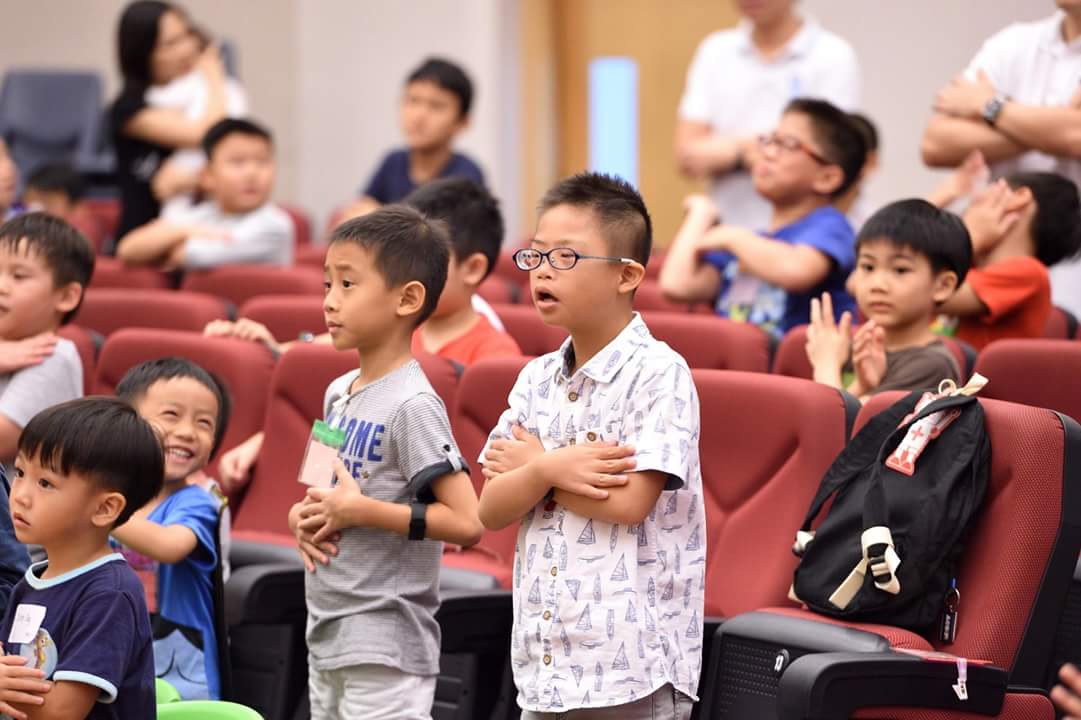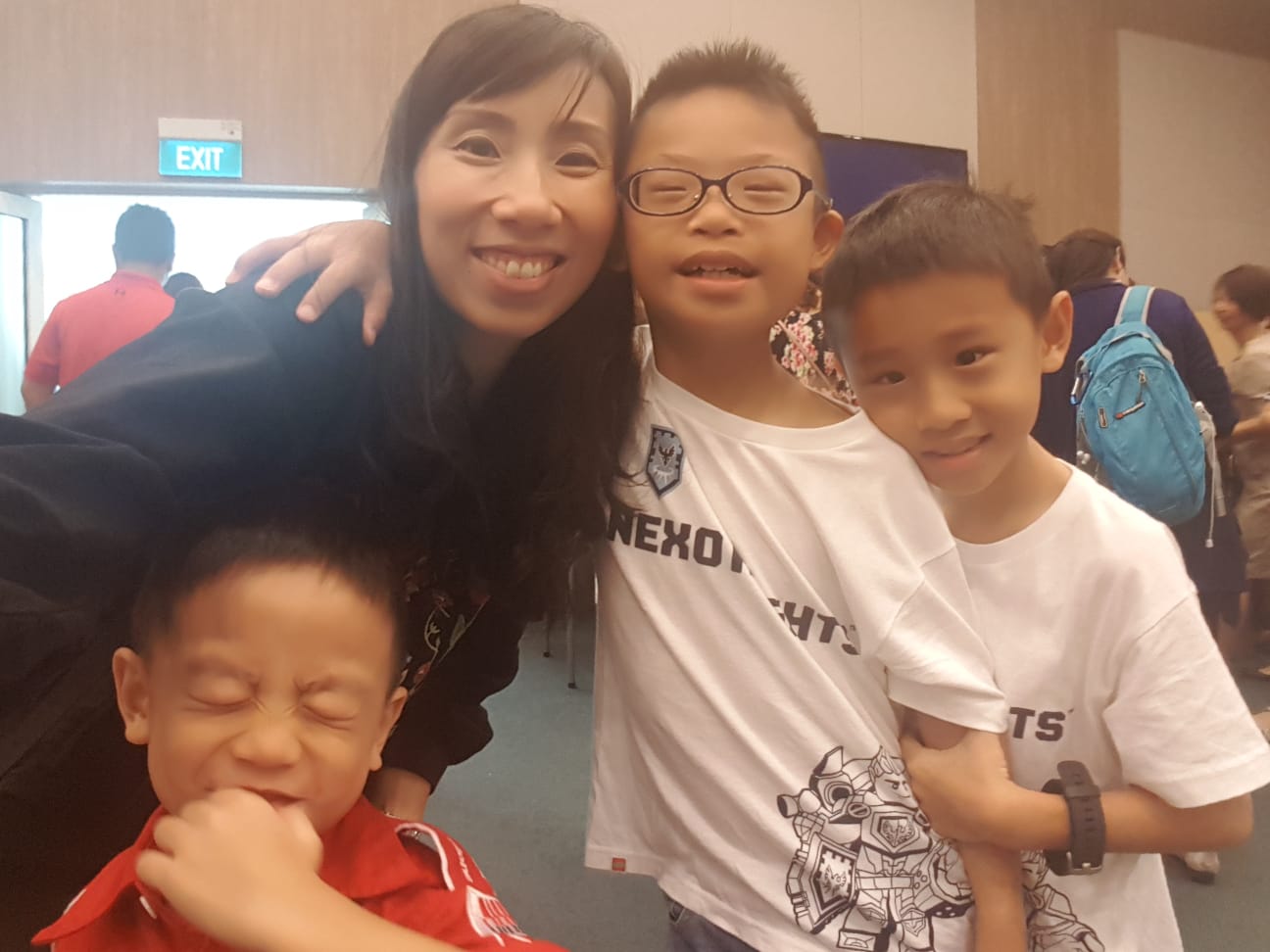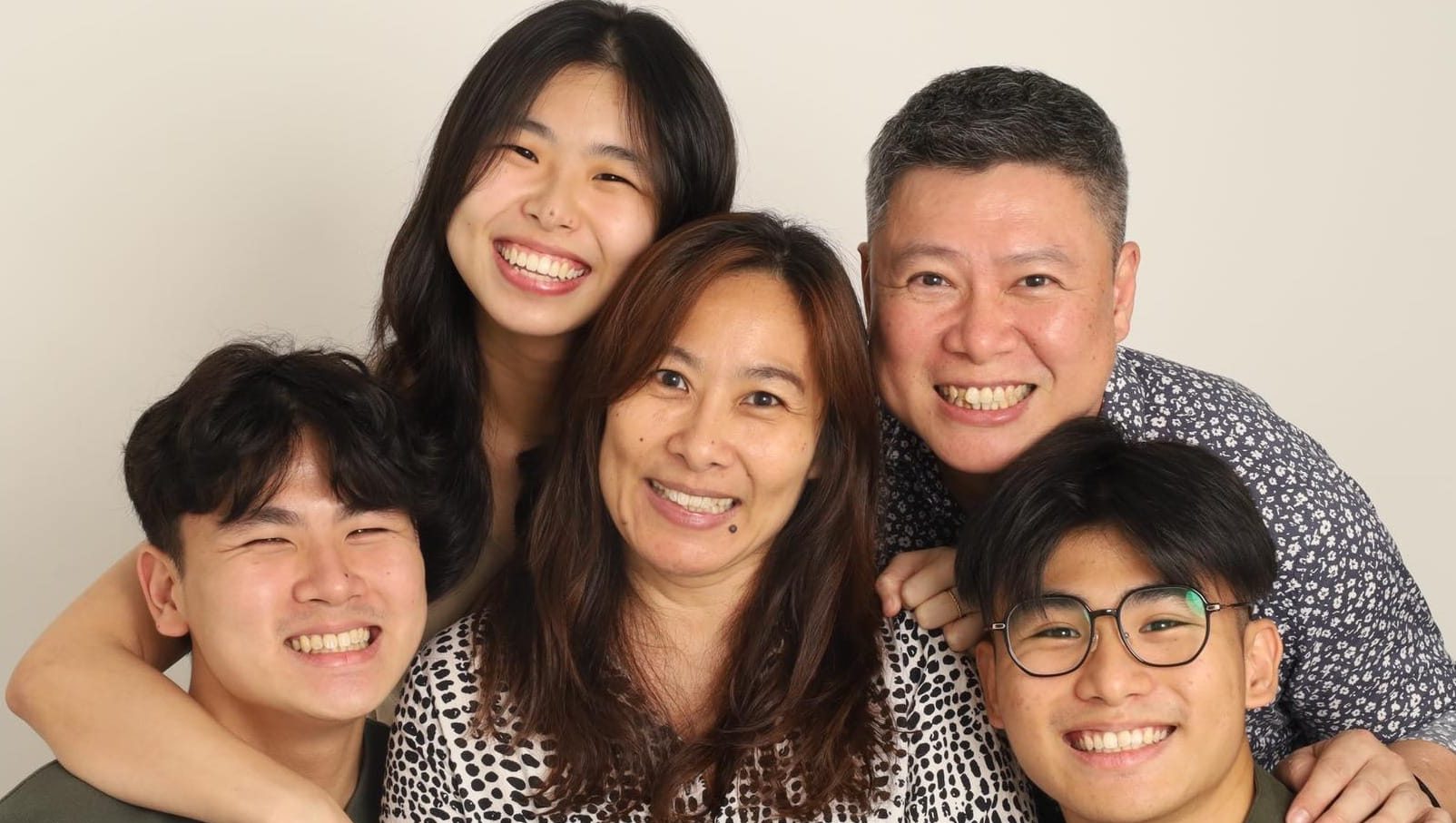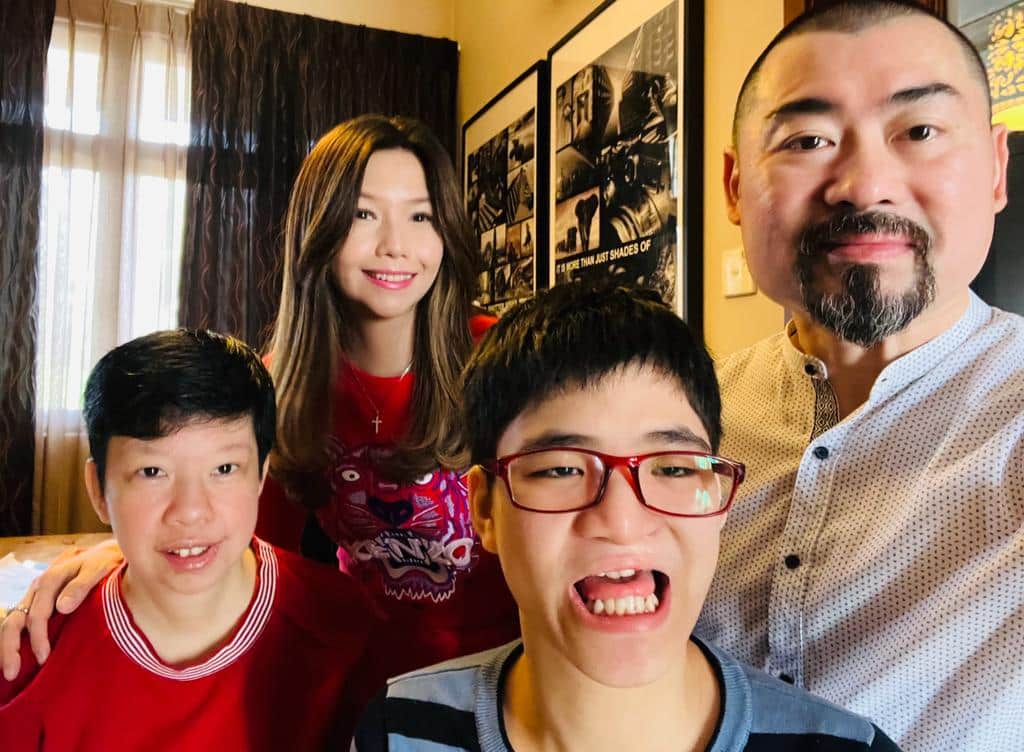Providing pastoral care for families with special needs? It’s not just a pastor’s role, it’s yours too
by Gracia Lee // April 5, 2021, 3:22 pm

Elliot, 14, who has Down Syndrome, worshipping in church. The dream of his mother, Sherlyn Quek, is to see him serving actively in church one day. Photo from St James Church Superpower Kids' Facebook page.
On the day that Sherlyn Quek, then 32, welcomed her second child, Elliot, into the world, she was delivered the shocking news: Elliot had Down Syndrome.
On top of having to cope with the diagnosis and what that would mean for their family, Quek and her husband also had to deal with a host of other health problems that Elliot had, including three holes in his heart and acute myeloid leukaemia.
“I can’t say this enough, but I’m very thankful that we’re a Christian family.”
“That year was the most difficult Christmas spent as a family in the oncology ward,” said Quek, a nutritionist, whose son was born in December. “I found myself struggling to pray, to be very honest. I was just mentally very exhausted.”
However, she found comfort and strength from her cell group and other church friends, who formed prayer groups and surrounded the family with spiritual and practical support through their ordeal.
She recalled them “springing up” at the hospital to donate their platelets, bring them home-cooked meals and take care of their older child, as well as simply offering their company during hospital stays.
“I can’t say this enough, but I’m very thankful that we’re a Christian family,” said Quek, who is grateful for the support that she received from her church community.
Whole-community effort
Quek, now 46 and a mother of four, was sharing her story at the third and final module of the Certificate of Christian Disability Ministry (CCDM) programme, which aims to build more disability-inclusive churches.

Quek with her three sons, (from left) Enzo, Elliot and Regis. Quek also has an older daughter. Photo courtesy of Sherlyn Quek.
The programme is a collaboration between Koinonia Inclusion Network and Scripture Union Singapore.
The two-day online module, held over Zoom on March 6 and 13, saw an attendance of 20 participants from 17 churches, and was centred around how churches can extend pastoral care to persons with special needs and their families.
Developing a strong network of relationships within the church allows everyone to play a part in caring for the family.
Unlike what many of us may think, providing pastoral care to these families is not solely the role of pastors, counsellors or trained professionals, said Leow Wen Pin, lead trainer of the course and president of KIN.
Rather, it involves the whole church community, he stressed, adding that it is important to help them develop a strong network of relationships within the church, so that everyone can play a part in caring for the family.
For parents of children with special needs, he said, the most common question and concern they have is: What will happen to my children when I’m gone?
“The only way you can ensure your child is taken care of when you’re gone is not by accumulating lots of money so that they will always have a professional by their side … That wouldn’t ease your heart.
“The thing that will ease your heart is knowing that there are lots of other people who love your child as much as you love him or her. So, I think we, as a church, have a responsibility to develop some of such relationships.”
Furthermore, as one family in Christ joined together by the work of Jesus on the cross (Ephesians 2:19), we are entrusted the responsibility of bearing one another’s burdens (Galatians 6:2), he added.
Noting the name of Sengkang Methodist Church’s disability ministry, Ohana, which is a term for “family” in Hawaiian, Leow said, quoting a popular children’s animated movie, Lilo & Stitch: “Ohana means family. And family means no one gets left behind.”
Bedrock of pastoral care
How can churches help persons with special needs and their families develop a deeper and broader network of relationships within the community?
Firstly, to address apathy toward people with special needs, church leaders can set the tone through their preaching at the pulpit, said Leow.
Friendship-building platforms can be established, such as simple activities like walks, visitations, birthday celebrations or sports activities.
Then, members can be equipped with the skills to interact with people with special needs. This will help to address any fears or uncertainties that church members may have about approaching and befriending those who may be different from them, he added.
Finally, friendship-building platforms can be established, such as simple activities like walks, visitations, birthday celebrations or sports activities, which will create opportunities for church members to get to know one another in a more organic way.
One approach that has been scientifically proven to be effective, said Leow, is the concept of circles of support, which refers to a small group of people who have made an intentional commitment to befriend a person with disability and their family.
After identifying the person’s or family’s needs and the kind of support required, as well as the gifts of the person with disability, the group can then work together to achieve individual or shared goals, which may be church-centric (for instance, serving in church) or not (for instance, finding employment).
Stressing the need to rebalance ministries in churches from being programme-heavy to being relationship-heavy, Leow said: “These relationships are the bedrock on which we build all our pastoral care.”
Preach comforting truths
Apart from helping persons with disabilities and their families build strong relationships, it is also critical for the Church to help them develop an accurate theological understanding of disability, said Leow.
Unbiblical views or perspectives can create anxiety, stigma and alienation for these people and their families. Through preaching and teaching ministries, as well as more personal means such as pastoral counselling, the Church must help families develop more biblical and positive mindsets that will be more helpful for them, he added.
In the absence of healing … the Church can step up to become a healing community that offers help and love.
For example, instead of focusing on “half-truths”, such as simplistic explanations that relate disability to sin or a lack of faith (John 9:3), we can remind these families that all suffering will end when Jesus comes again (Revelation 21:4), he said.
We can also encourage them that their suffering is not senseless as it can, among other things, transform us into Christ’s likeness (Philippians 3:10) and lead others to Christ (John 9:3).
As family members may view the person with disability with apathy, shame or denial, Leow added that the Church can remind them from God’s Word that all persons are made in the image of God and hence possess inherent value (Luke 14). Furthermore, all Christians are given the gifts of the Spirit and can contribute to the body of Christ (Ephesians 4:7).
And in the absence of healing, which God may choose to withhold in his sovereignty, the Church can step up to become a healing community that offers help and love, he added.
Holistic and bold
With the completion of the final module in the series, 11 students have graduated from the programme, said Leow.
“The body of Christ is a scarred and disabled body, and it will be incomplete and truly disabled if it is not inclusive.”
Low Kwang Meng, 48, shared that the lessons reinforced his belief in the importance of including people with disabilities in the Church. “In a sense, the body of Christ is a scarred and disabled body, and it will be incomplete and truly disabled if it is not inclusive,” he said.
As the director of Paya Lebar Methodist Church’s christian education ministry, he hopes to help his church become more disability-inclusive – firstly by creating greater awareness of and knowledge about people with disabilities and, in time, starting a ministry to people with disabilities, he added.
Another graduate of the course, Emily Chung, 43, who has a child with Down Syndrome, said she appreciated that the course was holistic and boldly tackled oft-avoided topics like sexuality in persons with disabilities.
She added that she was comforted that it also helped participants to better understand the struggles of families of persons with disabilities, in particular that their grief goes in cycles.
“Even as one family looks like they’ve arrived and accepted their special needs child in the family, it does not mean there will not be another event or situation that will throw them right back into grief. So I am very happy to see how this course aims to bring a glimpse of that complexity to its students.”
IF YOU LIKED THIS STORY, READ:
How do Sunday Schools meaningfully include children with special needs?
We are an independent, non-profit organisation that relies on the generosity of our readers, such as yourself, to continue serving the kingdom. Every dollar donated goes directly back into our editorial coverage.
Would you consider partnering with us in our kingdom work by supporting us financially, either as a one-off donation, or a recurring pledge?
Support Salt&Light


